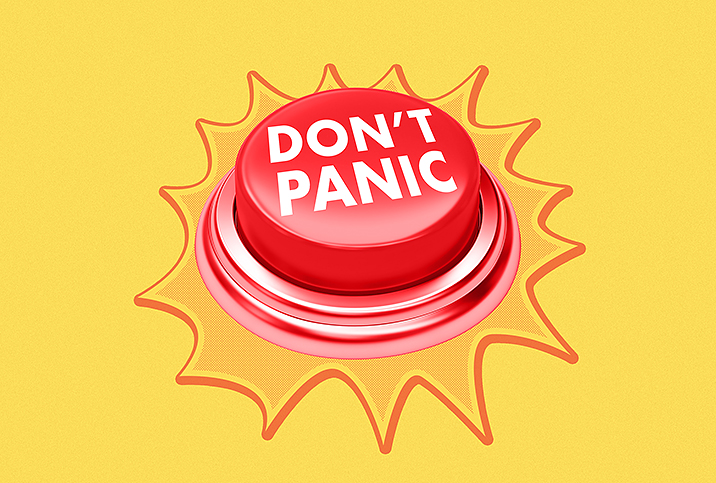Even People Without a Prostate Should Know Some Basics

From making doctor appointments to urging partners to get that suspicious mole checked out to filling out the endless piles of insurance paperwork, when it comes to managing a family’s health and wellness, women often play a pivotal role.
So when it comes to prostate health, it makes sense that women might want to know how to help protect the health of their loved ones—and be on the lookout for symptoms that could signal a problem.
Wading into prostate health
First, a little Prostate Health 101: The prostate is a male reproductive gland, located just below the bladder and in front of the rectum, whose primary job is to make seminal fluid. As men age, the prostate increases in size. If it gets too big, it can block urinary flow or cause other symptoms. The prostate also poses a potential concern because prostate cancer is the second most common type of cancer in men, behind only skin cancer.
Those are the basics, but many women may want to know more, and that doesn't surprise Jennifer Linehan, M.D., a urologist and an associate professor of urologic oncology at the Saint John's Cancer Institute at Providence Saint John's Health Center in Santa Monica, California. At the many lectures she gives on prostate health, women are frequently the largest contingent in the crowd, she said.
In some of the populations with whom she works, such as Black men in Southern Los Angeles, a lot of fear surrounds the prostate, Linehan explained. Men are hesitant to even get checked, for fear they will find something wrong. So their wife or partner will seek information instead.
The first detail she tells women who are curious to learn more about the prostate is that even if the man in their life displays urinary problems, it doesn't necessarily mean he has cancer.
"I encourage women [to know that] urinary symptoms could be an enlarged prostate, but that doesn't always mean cancer," Linehan said.
An enlarged prostate is not always cancerous
As Linehan explained, an enlarged prostate that's not cancerous, called benign prostatic hyperplasia (BPH), is common in men, especially as they age. In fact, men begin to experience BPH around age 40, and up to 90 percent of men will have some form of prostate enlargement by age 80 or older, according to the American Urological Association.
The trouble with assessing prostate enlargement, however, is that it can be just a normal part of aging or it can be an early sign of prostate cancer. That's why it's important to be aware of the symptoms of an enlarged prostate and get checked out early, so doctors can monitor any changes.
The symptoms of an enlarged prostate can include:
- Getting up more often at night to urinate
- Having a slow stream of urine
- Experiencing urgency or frequency (i.e., when you have to go, you have to go now)
- Dribbling urine
- Not being able to fully empty the bladder
While these symptoms can be a sign of an enlarged prostate that is not cancerous, Linehan advised to also watch for more worrisome symptoms that could indicate cancer:
- Bone pain
- Back pain
- Blood in the urine
- Intense trouble urinating
"Those are really symptoms you need to see a urologist about," she said.
In rare cases, Linehan said, erectile dysfunction (ED)—consistently not being able to get or maintain an erection—could also be an early sign of prostate cancer. However, ED is a much less common symptom. What's more important to observe are any sudden changes in sexual or urinary function.
Take the first step
While being aware of the symptoms is important, Paul Kozlowski, M.D., a urologist and surgeon at Seattle's Virginia Mason Hospital, cautioned that most cases of prostate cancer are completely asymptomatic.
"Most guys with prostate cancer do not have any symptoms," he explained. "It's not like the wife is going to notice that something is wrong in the bedroom or that her partner is taking longer to go to the bathroom or getting up at night. Those are signs of an enlarged prostate, not how prostate cancer presents."
Kozlowski and Linehan recommended both partners be aware of the need for routine prostate health screening, which consists of a baseline prostate-specific antigen (PSA) test and a digital rectal exam (DRE) to feel for any abnormalities. PSA is a protein produced by both normal and cancerous cells in the prostate gland. Elevated PSA levels in the blood—generally 4 nanograms per milliliter (ng/mL) or higher—could indicate the presence of prostate cancer.
Linehan recommends the following guidelines to begin screening:
- If you're African American, ask your doctor for a PSA test at age 45.
- Anyone with a family history of prostate cancer should ask their doctor for a PSA test at age 40 or 45.
- Men at average risk for prostate cancer should get a PSA test at age 50.
A doctor will start with both the PSA test and the digital rectal exam together, then proceed to magnetic resonance imaging (MRI) if the PSA test comes back abnormal. If the MRI shows any further abnormalities, the prostate will be biopsied to test for cancer. However, if the PSA test and rectal exam don't show any reason for concern, the man usually can be cleared for screenings annually or every two years.
Having a baseline PSA level is helpful, but Linehan stressed it's important to keep in mind that it's not the number that matters; it's any change in that number over time.
"A PSA blood test is the easiest screening for prostate cancer, but it's not about the number," she explained. "Zero to 4 is normal, but that's not always the case. I've had patients with prostate cancer who had a PSA of 2 and some without cancer who had a PSA of 40. For doctors, it's more about the trend, which is why the blood test can be followed along every year to pick up on if something is changing over the years."
For women whose partners are reluctant to be screened, Kozlowski pointed out it's important to stress how a health problem in one person has a ripple effect.
"It doesn't just affect the patient—it affects the spouse, the family members and the kids," he said. "Life is chaotic enough, then to deal with a medical problem? It really affects the whole family."
Linehan bluntly noted she sometimes has to encourage women to remind their partners that the longer they delay a doctor appointment, the worse the problem could be, especially if they are already experiencing urinary problems or sexual dysfunction symptoms.
"Some cancers don't even need treatment," she said. "But you won't know until you get it checked out."




















